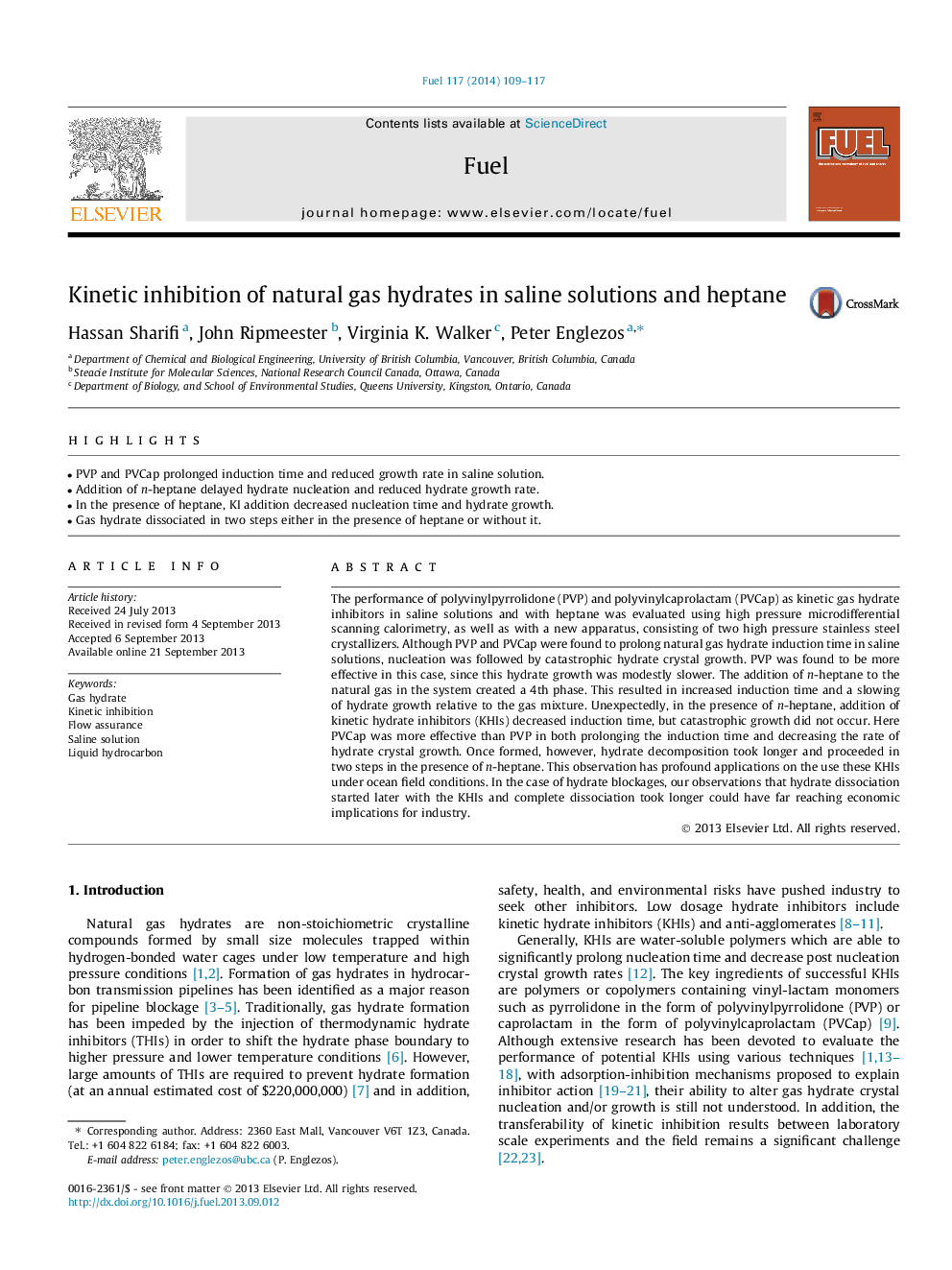| Article ID | Journal | Published Year | Pages | File Type |
|---|---|---|---|---|
| 10271908 | Fuel | 2014 | 9 Pages |
Abstract
The performance of polyvinylpyrrolidone (PVP) and polyvinylcaprolactam (PVCap) as kinetic gas hydrate inhibitors in saline solutions and with heptane was evaluated using high pressure microdifferential scanning calorimetry, as well as with a new apparatus, consisting of two high pressure stainless steel crystallizers. Although PVP and PVCap were found to prolong natural gas hydrate induction time in saline solutions, nucleation was followed by catastrophic hydrate crystal growth. PVP was found to be more effective in this case, since this hydrate growth was modestly slower. The addition of n-heptane to the natural gas in the system created a 4th phase. This resulted in increased induction time and a slowing of hydrate growth relative to the gas mixture. Unexpectedly, in the presence of n-heptane, addition of kinetic hydrate inhibitors (KHIs) decreased induction time, but catastrophic growth did not occur. Here PVCap was more effective than PVP in both prolonging the induction time and decreasing the rate of hydrate crystal growth. Once formed, however, hydrate decomposition took longer and proceeded in two steps in the presence of n-heptane. This observation has profound applications on the use these KHIs under ocean field conditions. In the case of hydrate blockages, our observations that hydrate dissociation started later with the KHIs and complete dissociation took longer could have far reaching economic implications for industry.
Related Topics
Physical Sciences and Engineering
Chemical Engineering
Chemical Engineering (General)
Authors
Hassan Sharifi, John Ripmeester, Virginia K. Walker, Peter Englezos,
